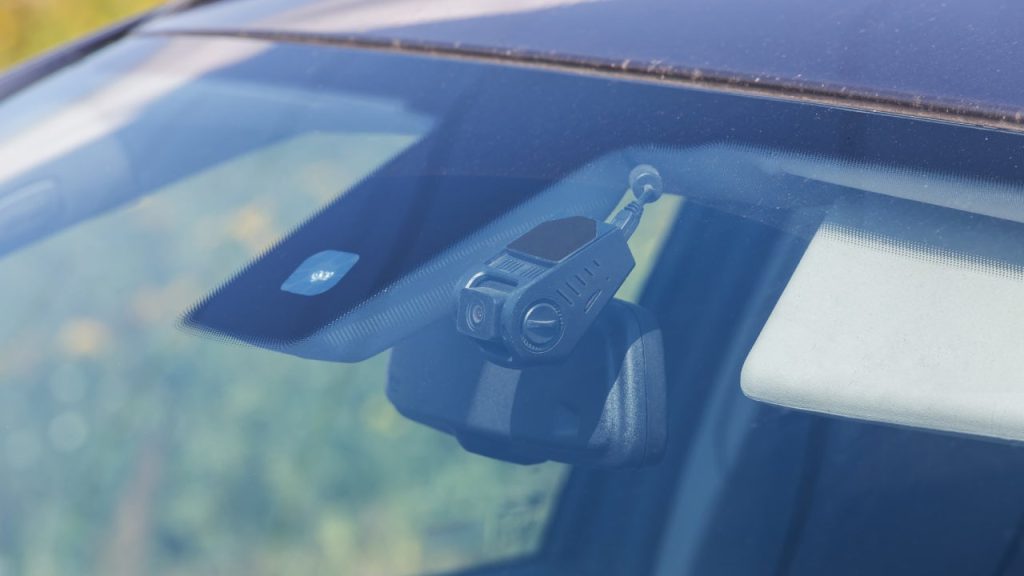A dashboard-mounted camera (or “dash cam”) won’t typically lower the cost of your auto insurance automatically. Almost no U.S. auto insurers offer a direct discount for installing a dash cam, but having one in your car could still have positive payoffs. Bankrate’s insurance editorial team looked into the technology and put together a list of things to consider before investing in a dash cam.
Do dash cams impact your car insurance?
Not directly. As of 2025, the only U.S. insurer to advertise a direct dash cam car insurance discount is a small Ohio-based insurance startup named Branch Insurance, which announced a partnership with Nextbase Dash Cams in 2021.
In general, having one won’t directly impact your auto insurance rates — either positively or negatively. However, if having a dash cam helps you avoid liability for an accident, it may also help you circumvent the steep premium increase associated with an at-fault event. In this way, having a dash cam could indirectly affect your rate.
What does a dash cam record?
Dashboard cameras can record a variety of footage, based on where you install it and your particular model’s features. Generally speaking, dash cams can record:
- Footage of your driving point-of-view through the windshield of your car (when a lense is pointed over the front dashboard of the vehicle).
- Footage of the surroundings behind your car (when a lens is pointed toward the back window of your vehicle).
- The interior of your car (when a lens is pointed away from the windshield).
- The audio from inside your car, regardless of where the camera is pointed.
It’s important to note that some cameras will only record while the car is powered on. Additionally, some cameras can be hardwired for 24/7 power, allowing it to record footage while the vehicle is parked and powered off.
Dash cams can record as long as they have power. The footage is typically recorded on a loop — old footage is continuously replaced with new footage as your camera’s SD card fills up. The length of the recording loop depends on the SD card capacity, which usually ranges from 8 GB to as much as 512 GB. Some models may also record your GPS location to help you pinpoint the exact location of an accident.
Some models have a single lens pointed either toward the front or rear of the vehicle. Other models have duel lenses; one pointed forward and one pointed backward. These models are typically placed on the front dash, and allow you to capture both the interior of the vehicle and the immediate surroundings.
Do insurers look at dash cam footage?
Insurers may look at your dash cam video footage as a part of their assessment of the accident. However, their ability to use the footage may depend on the state where the accident took place. For example, in Florida, the video may typically be used to support your case after the accident if it meets the following criteria:
- The footage relates directly to your car accident.
- The footage clearly depicts the accident.
- The footage can be proven as authentic.
Bear in mind that some insurers may choose not to view or use dash cam footage as a part of their claims process. Whether they view it may also depend on the adjuster assigned to your accident.
How can dash cams positively impact your car insurance?
While having a dash cam won’t lower insurance directly in most cases, these devices can still positively impact your insurance in a number of ways.
Provide video evidence for insurance claims
The claims process following an accident may sometimes be drawn out as insurance companies wade through the evidence. They may need to wait for a police report and deal with conflicting driver accounts. Having video evidence of the accident provides an objective perspective. Handing over dash cam footage to your insurance company may be more helpful than photographs or witness accounts, though you should still provide those pieces of evidence as well.
Bear in mind, supplying video evidence for insurance claims can have a couple of outcomes:
- The video could prove that you’re not at fault and clarify conflicting witness or driver statements in your favor.
- The video could prove your liability in the accident and lead to higher premiums in the future.
Prevent insurance fraud
Car insurance fraud is an increasingly common problem that could be reduced by dash cam use. If someone tries to involve you in a staged accident to receive a fraudulent claims payout, the result may be disastrous and might cost you thousands of dollars in legal fees and increased insurance premiums. Having a video record of these events might help clear your name. If you believe you have been involved in a car insurance fraud scheme, you will likely want to contact law enforcement and turn over any video evidence you have as soon as possible.
Encourage mindful driving
Owning a dash cam won’t directly impact the price you pay for car insurance, but becoming a safer driver might. Monitoring your driving with a dash cam could increase your awareness of what’s happening on the road and support defensive driving habits that can help you reduce your risk of accidents.
If you can avoid moving violations like speeding tickets and car accidents for a few years, many car insurance companies will reward you with a lower rate and potentially a good driver discount. If you’re interested in using technology to save on car insurance, it’s also worth looking into telematics programs, which use mobile apps to monitor driving habits in real time in exchange for potential insurance discounts.
Act as a security camera
Although car accidents are always a danger while driving, many incidents that damage your car happen while parked. If your car insurance policy includes comprehensive coverage, then incidents that damage your car such as theft, vandalism, falling tree limbs and damage from fires and severe weather hazards are generally covered.
A dash cam that’s hardwired to record even when your car is off could capture these events and provide video evidence to support your insurance claim.
If you live in rural areas where crossing wildlife can be a hazard, having a dash camera record the moment of impact may also help your insurance claim. Again, to file a claim of this nature, you’ll generally need to have comprehensive coverage in your policy.
Monitor your teen’s driving
Adding a teen driver to your policy can be an expensive change since statistics show that teenage drivers are more likely to be involved in an accident compared to other age groups. As such, insurance companies generally classify teenage drivers as high-risk motorists and charge a hefty premium to compensate for it.
Although your insurance company won’t necessarily lower your costs just because you have a dash cam in your teen’s car, your teen may be more conscious while driving if they know that they are being monitored. You could watch whether your teenage driver is following traffic laws or passenger limits and address any issues before a ticket or accident happens. You may even appreciate the extra peace of mind while your teen is on the road.
Are dash cams worth it?
Although discounts are largely unavailable just for owning a dash camera, the technology might still help you maintain cheaper car insurance rates by protecting you from fraud or influencing you to be a better driver. Additionally, installing a dash camera could assist in the insurance claims process, adding convenience to your insurance experience. On the other hand, some drivers may be distracted by dash cams, which could draw your attention away from the road if you’re looking at or fiddling with the dash cam while driving and increase accident likelihood.
The benefit you might get from a dashboard camera likely depends on the frequency and use of your car, as well as how much you spend on the camera. Generally speaking, a reliable dash cam costs at least $100, with top-of-the-line models running several hundred.
The less-expensive models generally do not have their own screens for viewing, contain no internal battery and have few features other than HD recording. Higher-end models generally come with many features, such as their own screen, extended battery life and built-in GPS. You may want to consider what you want your dash camera to accomplish before purchasing one and make sure it’s running correctly before relying on it for any kind of video evidence.
Frequently asked questions
Why we ask for feedback
Your feedback helps us improve our content and services. It takes less than a minute to
complete.
Your responses are anonymous and will only be used for improving our website.
Help us improve our content
Read the full article here









